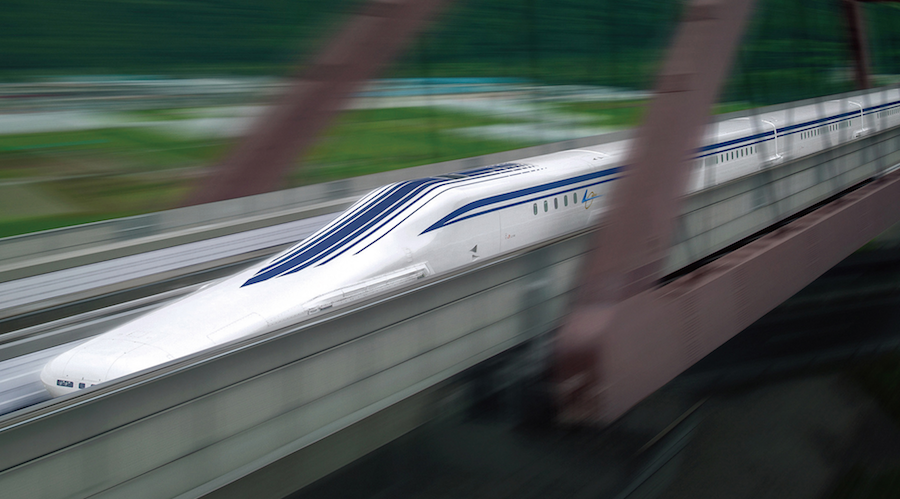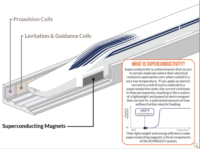Construction of a high-speed maglev train system between Baltimore and Washington, D.C., could begin as early as 2020, according to Maryland Secretary of Transportation Pete Rahn.
Speaking before a state legislative committee, Rahn said that the NEPA analysis of potential routes for the 40-mile system are focusing on both sides of the Baltimore-Washington Parkway, portions of which are maintained by the Maryland Department of Highways and the National Park Service. Construction would take between five to seven years, Rahn added.
While terminal locations in both cities’ downtowns have yet to be determined, the maglev line would have a stop at Baltimore/Washington Thurgood Marshall International Airport. Approximately 75% of the line would be located underground.
Estimated to cost as much as $15 billion, the Baltimore-DC maglev project would rely entirely on private financing. Although the project’s website mentions no specific funding resource or allocation, Wayne Rogers, CEO of project developer NortheastMAGLEV, told the state legislative committee that $5 billion in funding will come from Japan, where high-speed trains using superconductiving magnetic levitation technology have been in operation for several years. The technology allows for speeds of up to 300 mph, according to proponents.
Maryland Governor Larry Hogan (R) became a proponent of a Baltimore-Washington project following a 2015 trade mission to the country, when he and Rahn rode the 27-mile Yamanashi maglev line.
In 2016, the Federal Railroad Administration awarded the state $27.8 million grant to fund preliminary and a NEPA analysis of potential routes. A draft environmental impact statement is due to be issued in early 2019, according the project’s website.
NortheastMAGLEV hopes the Baltimore-Washington segment will be the first step toward creating a route that would parallel, and potentially compete with, Amtrak’s Northeast Corridor. Entrepreneur Elon Musk has also proposed starting construction of his planned New York-DC hyperloop in Maryland. In October 2017, the state issued Musk a conditional utility permit to construct a 10.3-mile long tunnel near Baltimore. Although, the utility permit may not be enough to proceed with construction.
Not everyone is on board with the maglev project, however. Officials of Prince George’s County, which borders the District of Columbia to the north, have expressed concern about the project’s potential disruptions, and rapid pace of development. NortheastMAGLEV counters that the routes currently under analysis would have little, if any, construction-related effects on residents, and that the analysis includes a “no build” option.




